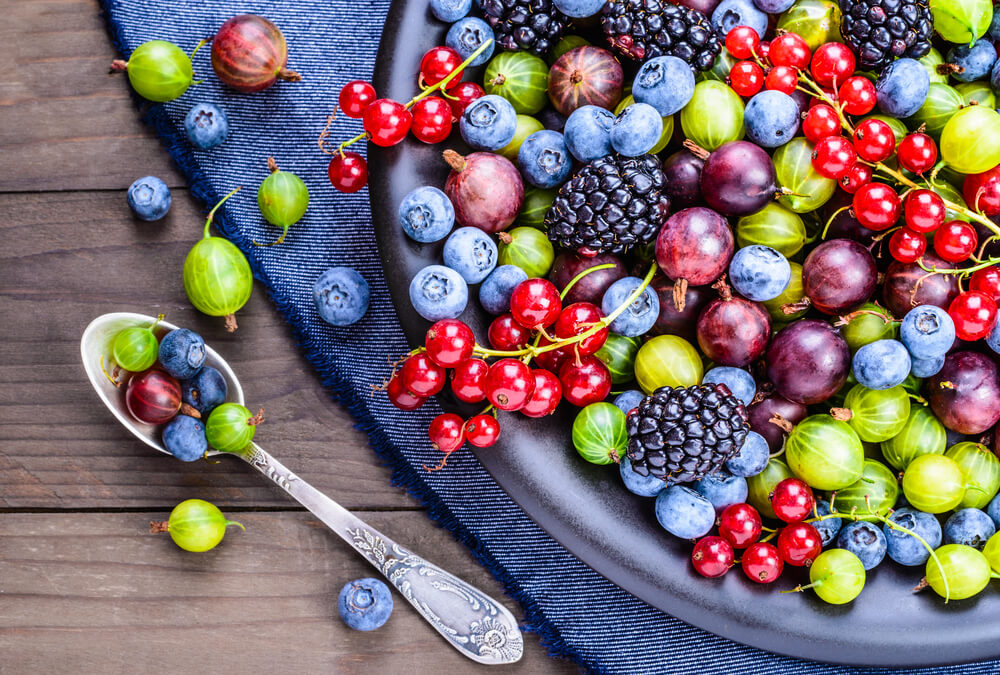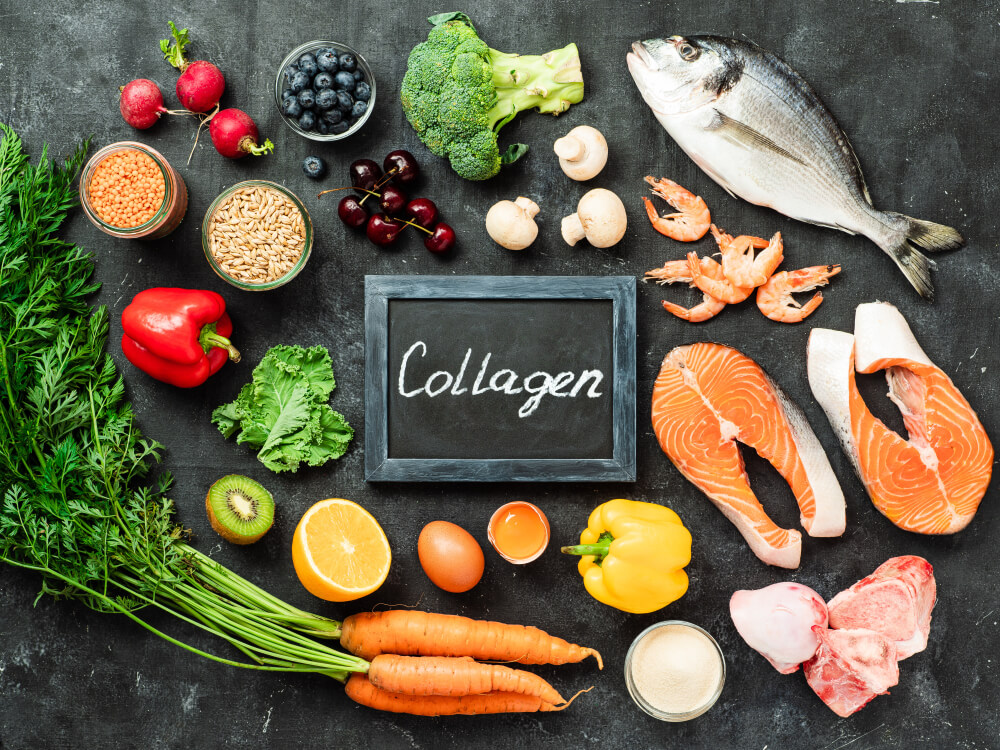What Is Collagen
It is your body’s most plentiful and strongest protein. Collagen fibers are generated by the cross-linking and twisting together of amino acids. It weights almost 75% of your skin and 30% the total body protein mass. It’s made up of lengthy protein fibers that provide the skin durability and hold it together structurally. Collagen production in skin aids in the renewal and repair of skin cells while also keeping the skin hydrated.
Collagen is present in connective tendons, tissue, ligaments,cartilage, bones,teeth, heart valves, and the cornea of your eyes. There are at least 16 basic varieties of collagen in your body. Although your skin has a lot of collagen when you’re young, the amount of collagen in your skin reduces as you get older, which is why it starts to seem thinner and wrinkled.
Are you wondering how to stimulate collagen production in the skin?
Collagen products for skin can help maintain youthful-looking skin. Also, a collagen boosting facial can stimulate collagen production in skin and get you glowing in no time. Call us for more information on the various treatments we offer at Spa Bradenton.
Until your collagen boosting facial at the spa, you can learn how to restore collagen in the face at home too. You’ll want to seek collagen products for the skin that contain peptides, vitamins, and antioxidants to help repair elastin and stimulate collagen production. Women’s Care of Bradenton offers collagen products for the skin and anti-aging treatments that are intended to slow down the breakdown of collagen in the skin.
What Affects Collagen?
Let’s look at what can harm our skin’s collagen now that we know what it is. Some of these factors may be readily adjusted by lifestyle choices, while others are beyond our control. We believe that you should control what you can in order to prevent the uncontrollables from getting out of hand. It is important to understand what is affecting your skin in order to learn how to stimulate collagen production in skin.
1) Environmental And Lifestyle Stressors
Pollution and free radicals can impair collagen formation and elasticity in the skin.
2) Consuming Excess or Processed Sugar
Sugar has been demonstrated to enhance the production of advanced glycation end products (AGEs), which harm adjacent proteins and degrade collagen, leaving it dry and brittle.
3) Sun Exposure

UV rays tear down the collagen in the dermis, causing aberrant elastin fibers to repair wrongly, resulting in wrinkles.
4) Cigarettes
Tobacco smoke contains a cocktail of chemicals that harm collagen and elastin. Nicotine also constricts blood vessels, impairing oxygen and nutrition supply to the skin.
5) Disorders Of The Autoimmune System
Some autoimmune diseases can lead antibodies to attack collagen.
6) The Natural Aging Process
Collagen levels gradually decline and degrade as we become older.
11 Effective Ways To Increase Collagen Production In Your Skin
Collagen may be increased in a variety of methods, including diet and supplementation.
1) Use Topical Peptides
Laboratory-created peptides have shown potential as a skin cream component for stimulating skin development and healing. Anti-aging peptides that increase collagen formation are included in collagen products for the skin and featured in our collagen boosting facial.
2) Try Chemical Extracts
Chemical peels are when a licensed professional applies a “chemical substance” to the skin in order to exfoliate a sun-damaged or thick surfaced skin to stimulate collagen formation for tighter, brighter skin. Peels performed on a regular basis (every 6-8 weeks) can stimulate collagen, which reduces the appearance of wrinkles.
3) Eat or Supplement with Fatty Omega Acids
Protect your skin’s collagen by eating a well-balanced diet rich in protein, such as fish high in Omega-3 fatty acids and vitamin A (which has an anti-inflammatory impact), as well as antioxidants. These ingredients fight off free radicals and prevent collagen loss and improve production.
4) Consume Bone Broth
Interesting enough, when you make broth, the collagen in animal bones will leach out during the heating process. Bone broth is said to offer nutritional and therapeutic properties. This can also aid in the reduction of inflammation and the improvement of your skin.
5) Reduce Or Eliminate Caffeine
We know, we know, this step is a lot to ask. Especially for coffee lovers. But still, caffeine has been shown to have a negative impact on the aging and wound healing processes of human skin. Try to limit your intake to one cup or less a day. Matcha can be a great alternative because green tea has excellent properties to support skin health.
6) Hyaluronic Acid
Did you know that the holy grail ingredient is not only found in skincare. You can eat hyaluronic acid too! This anti-aging substance is a crucial component of skin collagen. Hyaluronic acid is renowned for its ability to speed up skin hydration and even relieve aching joints.
According to one study, hyaluronic acid can aid in the formation of collagen in the human body. Hyaluronic acid is a naturally occurring substance in the body that declines with aging. However, if you don’t get enough vitamin C, your body won’t get the full advantage of hyaluronic acid-rich meals. Be sure to use hyaluronic acid collagen products for skin and try a collagen boosting facial if you’re wondering how to increase collagen.
7) Vitamin C
Did you know that you can restore collagen in the face by eating meals high in vitamin C and amino acids, both of which are crucial for skin. Citrus fruits, papaya, strawberries, broccoli, and green, leafy vegetables like cilantro are high in vitamin C. It can also be used as a nutritional supplement and is ideal if combined with pycnogenol.
8) Aloe Vera
You should use aloe vera topically to offer soothing and relaxing qualities for the skin, as we all know. People can extract aloe and administer it as a supplement. This supplementation is shown to quadruple collagen and hyaluronic acid synthesis in recent research.
9) Antioxidants

Antioxidants help protect the skin from free radical damage. Antioxidants like pycnogenol, which is present in collagen products for skin, help to boost new skin formation and rejuvenate the skin. Green tea, blueberries, licorice extract, mulberry extract, yerba mate, pomegranate extract, astragalus, cinnamon, basil, oregano, and thyme essential oils should all be included in your diet on a regular basis.
10) Ginseng
Ginseng’s anti-aging properties are well-known. Ginseng is absorbed into the skin without creating the side effects that many chemical medications do, and it aids in maintaining the skin’s barrier. If you’re wondering how to restore collagen in the face, ginseng has been found in studies to protect skin from sun damage caused by UVB rays. When you take a ginseng supplement or drink ginseng tea, antioxidants are released into your circulation, which helps protect healthy cells and contribute to beautiful skin.
11) Algae
Marine plant components are becoming increasingly popular in beauty products. This is because “oxidation” — the exposure of your skin to substances such as pollution can harm cell development — is the leading cause of skin damage. Algae can protect your skin from losing its suppleness and collagen due to oxidation.
You can buy algae at most health food stores in oral supplements, powders, and more.
On a Final Note
The skin’s collagen formation may be supported by micronutrients and lifestyle changes. Regular exercise can help minimize apparent aging, preserve collagen, and keep your skin, bones, muscles, and joints in better shape for longer. You want incorporate the following foods and supplements into your diet:
- Blackberries, blueberries, raspberries, and cherries because they contain anthocyanins.
- Egg whites, cheese, soy, cabbage, and beef because they all contain proline.
- Vitamin A is a fat-soluble vitamin found in plants such as beta-carotene and animal-derived meals.
- Copper is a mineral that may be found in shellfish, red meat, nuts, and even certain drinking water.
In addition to taking steps at home to stimulate collagen production in skin, book an appointment with us today for a collagen boosting facial. Our professional and expert team is here to help you achieve the skin of your dreams. Call and schedule an appointment today!


